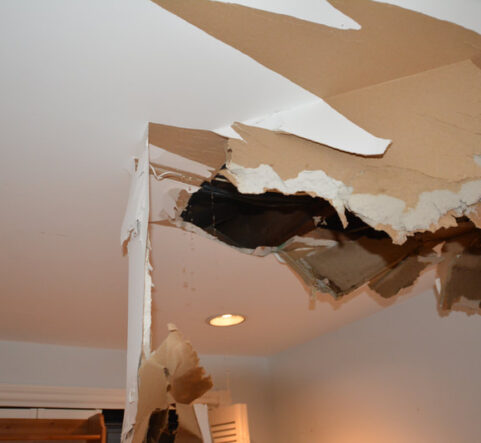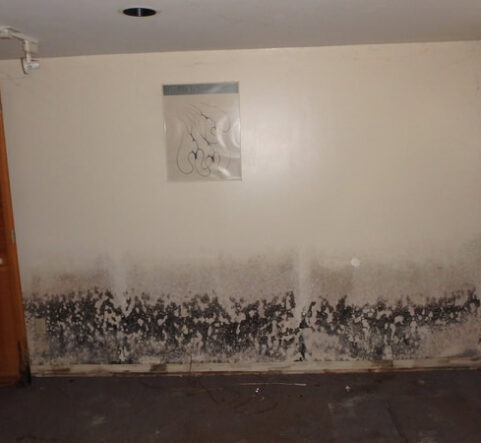Not every plumbing problem requires an emergency call. A slow-draining sink or a running toilet can usually wait until regular business hours. But some plumbing issues demand immediate professional attention—and the difference between a regular service call and an emergency can mean the difference between a minor inconvenience and thousands of dollars in damage to your home.
Plumbing emergencies can escalate quickly. What starts as a small issue can rapidly turn into a major disaster that affects your family’s health, safety, and comfort. The key is knowing when to call for emergency plumbing services, even if it means paying premium rates for after-hours service.
Understanding these warning signs can help you decide when plumbing problems strike. Here are the five critical situations that always warrant an emergency plumber call.
1. Burst Pipes: Every Second Counts
A burst pipe is the ultimate plumbing emergency. When a pipe ruptures, it can release hundreds of gallons of water into your home within minutes, causing devastating damage to walls, flooring, furniture, and personal belongings. The destruction can be swift and extensive, turning a comfortable living space into a waterlogged disaster zone.
The warning signs of a burst pipe aren’t always obvious until it’s too late. Watch for sudden drops in water pressure throughout your home, visible water pooling around exposed pipes, unexplained wet spots on walls or ceilings, and mysterious spikes in your water bill that can’t be explained by increased usage.
If you suspect a burst pipe, your first action should be shutting off the main water supply to prevent further flooding. Then immediately contact an emergency plumber. Time is absolutely critical in these situations—every minute of delay can result in exponentially more damage and higher repair costs.
2. Sewage Backups and Overflowing Toilets: A Health Hazard
Few plumbing emergencies are as unpleasant or dangerous as sewage backing up into your home. Whether it’s coming up through floor drains, backing up into toilets, or appearing in bathtubs and sinks, sewage in your living space creates an immediate health hazard for your family.
Sewage contains harmful bacteria, viruses, and other pathogens that can cause serious illness. The smell alone can make your home uninhabitable, but the real danger lies in the contamination it brings to your living environment. Children and elderly family members are particularly vulnerable to the health risks associated with sewage exposure.
A sewage backup typically indicates a serious blockage or problem in your main sewer line—something that’s well beyond DIY fixes. This situation requires immediate professional intervention, both to resolve the plumbing issue and to properly clean and sanitize the affected areas. Don’t attempt to handle this yourself; the health risks are too significant.
3. Complete Loss of Running Water: When Daily Life Stops
When you turn on a faucet and nothing comes out, your daily routine stops. No running water means no cooking, cleaning, bathing, or even basic hygiene tasks. For families with young children or elderly members, this situation can quickly become critical.
A complete water loss can stem from several serious issues: severe pipe blockages that prevent water flow. These frozen pipes have completely stopped water movement, or major leaks in your system that have caused a catastrophic loss of pressure. In winter months, frozen pipes are a particular concern because they can burst as they thaw.
While you might be tempted to wait and see if water returns, a complete loss of running water almost always indicates a problem that requires professional diagnosis and repair. The sooner you call an emergency plumber, the sooner you can restore this essential service to your home.
4. Persistent Foul Odors: More Than Just Unpleasant
When your home starts smelling like a sewer, it’s not just an unpleasant inconvenience—it’s a sign of a potentially serious plumbing problem that can affect your family’s health. Persistent foul odors from drains, around plumbing fixtures, or seemingly from nowhere can indicate several dangerous conditions.
These smells often result from sewer gas leaks, which occur when harmful gases from your sewer system escape your home. Sewer gas contains methane and hydrogen sulfide, which can cause headaches, dizziness, and other health problems with prolonged exposure. In extreme cases, these gases can even be explosive.
Foul odors can also indicate blockages in your plumbing system that are causing waste to back up and decompose in your pipes. This creates breeding grounds for bacteria and can lead to more serious sewage problems if not addressed quickly.
If you notice persistent bad smells that obvious sources can’t explain, don’t ignore them or try to mask them with air fresheners. An emergency plumber can identify the source of the problem and resolve it before it becomes a health hazard or escalates into a more serious issue.
5. Unusual Noises: Your Pipes Trying to Tell You Something
Your plumbing system should operate quietly in the background. When pipes start making unusual noises—gurgling, banging, hissing, or other strange sounds—they’re trying to tell you something is wrong. These noises often indicate problems that can lead to major failures if not addressed promptly.

Gurgling sounds typically indicate blockages or air trapped in your pipes, which can lead to complete blockages or backup situations. Banging or hammering sounds might signal pressure issues or loose pipes that could eventually rupture. Hissing sounds often indicate leaks or pressure problems that are getting worse over time.
While these noises might seem minor compared to visible water damage, they’re often early warning signs of impending plumbing failures. Addressing them quickly with emergency plumbing services can prevent the more serious problems they’re warning you about.
The Cost of Waiting vs. Acting Quickly
When faced with these warning signs, homeowners often hesitate to call emergency services because of cost concerns. Emergency plumbing services do cost more than regular appointments, but this investment almost always pays for itself by preventing much more expensive damage.

Consider the math: an emergency service call might cost a few hundred dollars more than a regular appointment, but the water damage from a burst pipe can easily cost tens of thousands to repair. The health risks and cleanup costs associated with sewage backup can be even higher. The inconvenience and potential health risks of going without water or living with sewer gas exposure simply aren’t worth the savings.
Trust Your Instincts
If you’re experiencing any of these five warning signs, don’t second-guess yourself. The potential consequences of waiting are almost always worse than the cost of emergency service. A qualified emergency plumber can quickly assess the situation, prevent further damage, and restore safety and comfort to your home.
Remember, plumbing emergencies rarely resolve themselves, and they almost always get worse with time. When you notice these critical warning signs, the best time to call an emergency plumber is right now. Your home, your family’s health, and your peace of mind are worth the investment in professional emergency service.
Need A Restoration Company in the Toronto Area?
Call 416 Restoration
1-416-400-5632
416 Restoration Gallery
